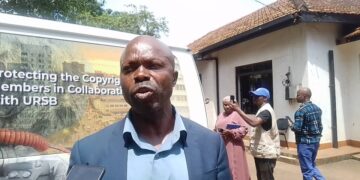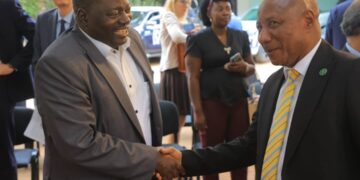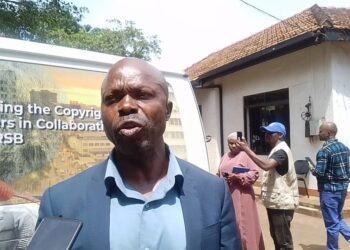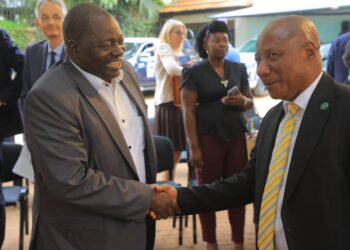OPINION
Over the last three years, Kampala streets have experienced a growing wave of protests against the controversial East African Crude Oil Pipeline (EACOP) marked by increasing brutal arrests of youth activists, oil host community members and persistent calls for the proponents of the project including the government of Uganda, Total Energies and China National Offshore Oil Company (CNOOC) to address the profound environmental, social, and economic grievances associated with the project.
The EACOP, a 1443-kilometer heated pipeline intended to transport crude oil from Uganda’s Lake Albert region to Port Tanga in Tanzania, has faced fierce opposition from youth activists, environmental and human rights defenders and local communities mainly from the ten districts that it traverses since its inception. While proponents tout its potential to generate revenue and create jobs for Ugandans, the project still poses significant risks to biodiversity, ecosystem and has displaced local communities without prompt adequate and fair compensation, undermines Uganda’s energy transition efforts and will exacerbate the climate crisis that Uganda is facing including unprecedented flood, prolonged droughts, severe heat, landslides among others.
In recent weeks, the outcry against the pipeline has manifested in numerous demonstrations, protests, particularly by young Ugandans who feel their future is being compromised for short term economic gains. These peaceful protests, often involving placards, marches and online social media campaigns, have been met with a heavy-handed response from security forces majorly the Uganda police leading to the arrest and detention of several youth activists accompanied by criminal charges of common nuisance, nuisance on the roads among others.
These arrests have sparked condemnation from local and international human rights organizations including Human Rights Watch, Amnesty International among others, who decry the suppression of dissent and the violation of fundamental rights to peaceful assembly and expression which are enshrined and guaranteed by various legislations, the 1995 constitution of Uganda and other international human rights instruments that Uganda ratified including African Charter on Human and People’s Right, African Commission on Human and People’s Rights (ACHPR) among others.
The persistent core grievances fueling these protests on Kampala streets are multifaceted and they include displacement and loss of livelihoods of communities along the pipeline route with inadequate compensation and resettlement plans, loss of land and traditional livelihoods by farmers and fisher folks around Lake Albert which has worsened the poverty levels and caused social unrest, lack of transparency and genuine consultation with affected communities and civil society organizations which fostered distrust and a sense of being excluded from decisions that will profoundly impact their lives, environmental degradation in areas the EACOP will traverse including the sensitive ecosystems, protected areas (Murchison Falls National Park), critical bio diversity, water bodies including Lake Victoria (Africa’s largest fresh water lake which is a particular concern due to its close proximity to the pipeline’s path and climate change.
To tackle this crisis, a multi-pronged approach is necessary. First, the government and other duty bearers including the Uganda Police must halt the arrests and intimidation of youth peaceful protestors. Secondly, a comprehensive and independent environmental and social impact assessments must be urgently conducted.
Thirdly, the government should prioritize green economic activities like tourism to drive sustainable growth, create jobs and safeguard the environment.
Furthermore, there is need for greater accountability and transparency for these projects. Public participation when conducting the Environmental Impact Assessments (EIAs) must be undertaken and ensure deliberate audits thereafter, to ensure that development does not come at the expense of people and environment. Stakeholders and duty bearers must coordinate effectively to transition from reactionary responses to proactive solutions. Otherwise the Ugandan government stands the risk of legal action for continuous violation of inherent human rights of its citizen.
The ongoing protests and the government’s response highlight a critical juncture for Uganda. Will the authorities continue to suppress dissenting voices in the name of development, or will they recognize the validity of the concerns raised and adopt a more inclusive and sustainable approach? The world is watching as this crucial debate unfolds, with the future of Uganda’s environment, its people, and its contribution to the global climate effort hanging in the balance.
By Comfort Tusingwire,
The writer is an Environmental Economist and Chief Executive Officer, Initiative for Green Planet (IGP)
Email: comforttusingwiretc@gmail.com








































